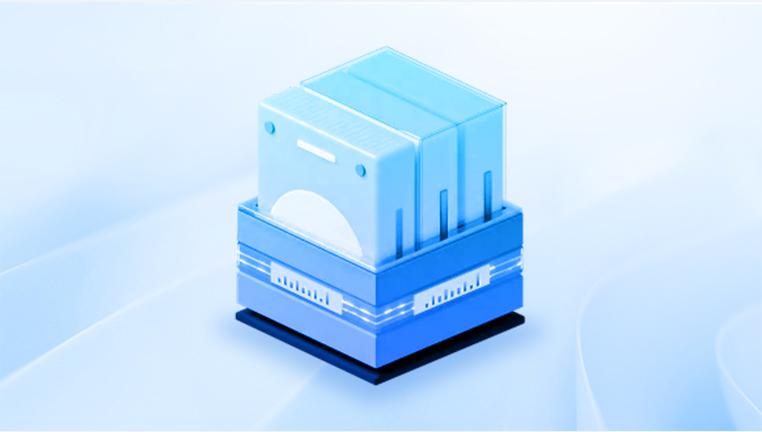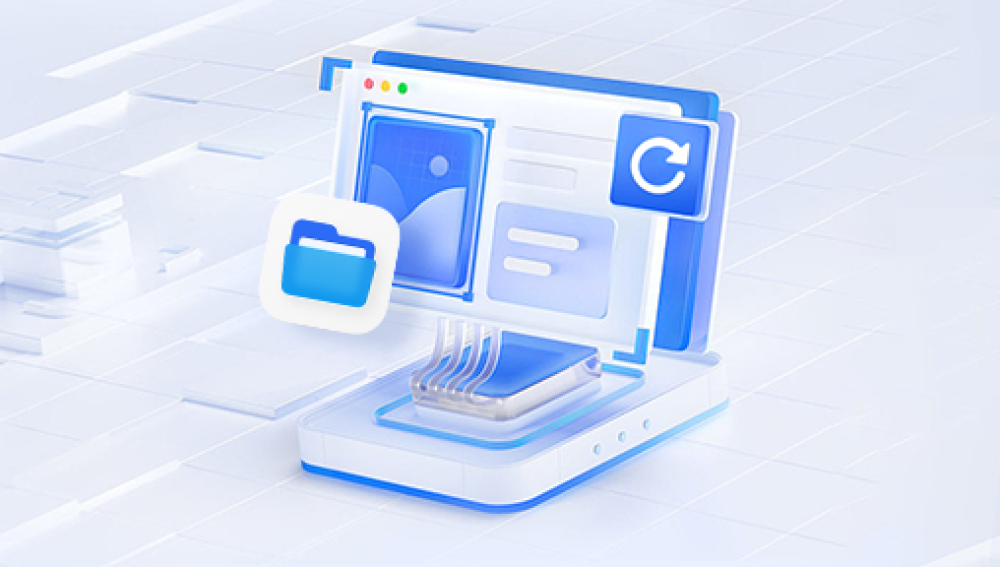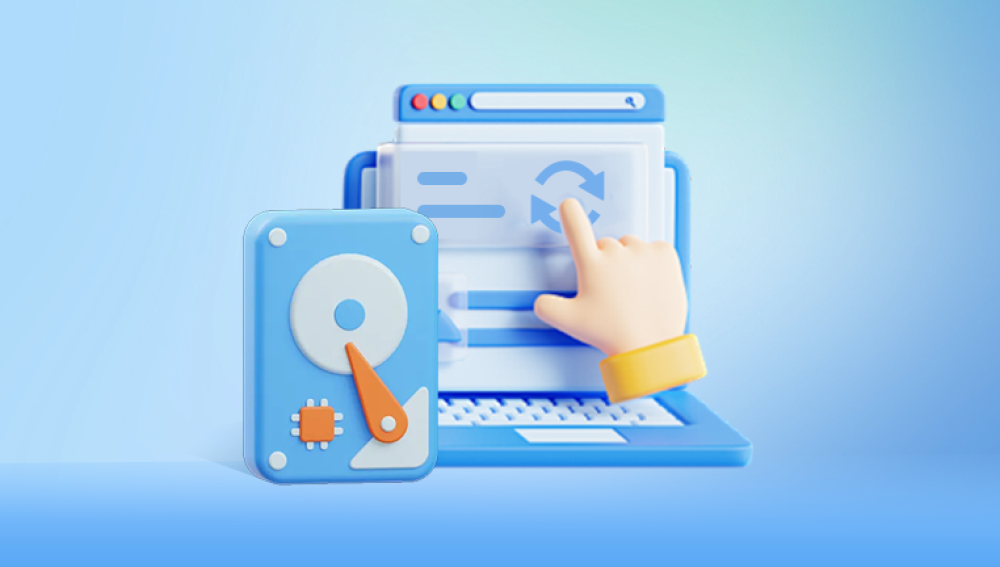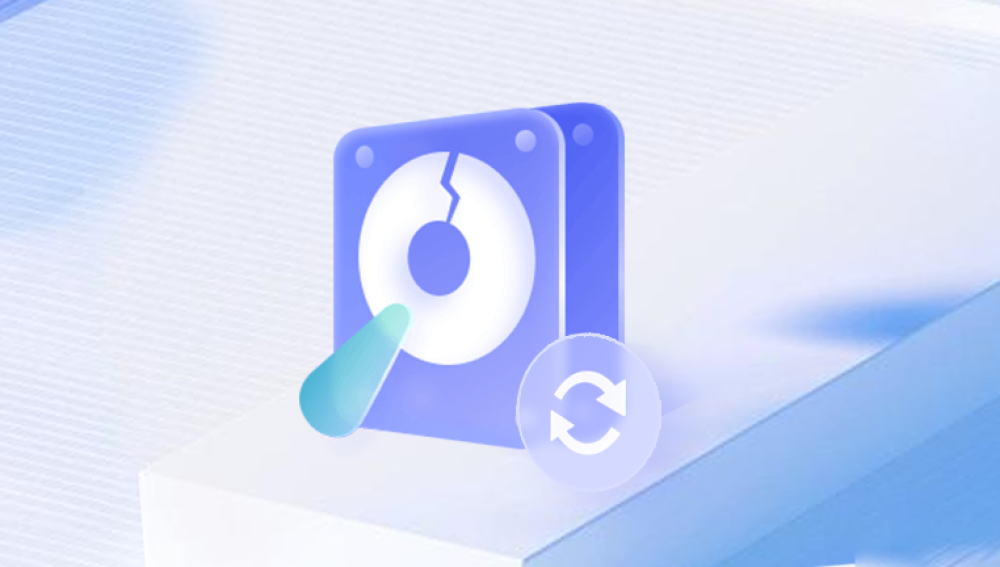As one of the world’s leading manufacturers of data storage solutions, Seagate provides high-performance and durable hard disk drives (HDDs) and solid-state drives (SSDs) for personal and enterprise use. Yet, like all digital storage devices, Seagate disks are not immune to failure. Accidental deletions, formatting errors, virus infections, file system corruption, or mechanical faults can all lead to unexpected data loss.
1. Logical Failures (Software-related)
These are the most common causes of data loss and typically involve no physical damage. Logical issues are best handled with recovery software.
Accidental file or folder deletion
Formatting or re-partitioning a disk
File system corruption (NTFS, FAT32. exFAT, etc.)
Operating system errors
Virus or malware infections

2. Hardware Failures (Physical damage)
These involve damage to the drive’s components and require expert repair and cleanroom facilities.
Drive clicking or grinding noises
Seagate disk not spinning or powering on
PCB (circuit board) failure
Read/write head failure
Platter damage or firmware corruption
3. Hybrid Failures
Some failures start as logical and lead to physical issues over time (e.g., a failing drive that becomes corrupted). Early detection and recovery attempts are key to success.
What Is Seagate Disk Recovery Software?
Seagate disk recovery software refers to any application designed to retrieve lost or deleted files from a Seagate drive. These tools scan the drive, locate recoverable data (even if it’s no longer visible), and allow you to restore it to a safe location.
While Seagate offers some of its own software tools, there are also several highly reputable third-party solutions that provide broader functionality and support for Seagate devices.
When to Use Recovery Software
You should consider using disk recovery software in these situations:
You deleted files from a Seagate internal or external hard drive
You accidentally formatted a Seagate drive
Your drive has become RAW or shows “unallocated” in Disk Management
You receive errors like “drive not recognized,” “access denied,” or “you need to format the disk before using it”
You lost a partition on your Seagate disk
You can hear the drive running normally but cannot access its contents
Important: If your drive is making unusual sounds or isn’t spinning, do not attempt recovery with software. This could further damage the data. Seek professional services instead.
Best Seagate Disk Recovery Software Options
Let’s explore the top recovery tools available for retrieving files from Seagate hard drives, SSDs, and external disks. These tools vary in ease of use, depth of features, and pricing, but all are compatible with Seagate drives and support various file systems.
1. Drecov Data Recovery
Overview:
Drecov Data Recovery is a powerful, easy-to-use tool that supports all Seagate drive models—internal, external, portable, and enterprise-level. It excels at recovering files lost through deletion, formatting, corruption, or partition loss.
Key Features:
Supports NTFS, FAT32. exFAT, HFS+, and APFS
Works on Windows and macOS
Quick Scan and Deep Scan modes
File preview before recovery
Recovers documents, photos, videos, audio, archives, and emails
Lightweight and fast
Why It Works Well for Seagate Drives:
Panda can detect Seagate disks even when the operating system can’t read them. Its deep scan option can reconstruct deleted files, including raw data from formatted or unrecognized partitions.
How to Use:
Install Panda on a separate drive (not the affected Seagate disk).
Connect your Seagate drive to the computer.
Launch Panda and select the drive from the list.
Run a scan—start with Quick, then Deep if needed.
Preview and select the files you wish to recover.
Save recovered files to a different storage location.
Panda is ideal for beginners and professionals alike due to its straightforward interface and high success rate.
2. EaseUS Data Recovery Wizard
Overview:
EaseUS is a well-established name in the recovery space. It offers a simple interface with strong recovery capabilities and is widely used for recovering data from Seagate drives.
Key Features:
Recovers over 1.000 file types
Partition recovery included
Windows and Mac versions available
Can recover data from virus attacks and system crashes
Limitations:
Free version only recovers up to 2GB
EaseUS is a solid choice for users recovering from formatting or OS failure.
3. Stellar Data Recovery
Overview:
Stellar offers robust scanning and deep file recovery, especially effective for severely corrupted Seagate drives or those with RAW partitions.
Key Features:
Retrieves files from formatted or inaccessible Seagate disks
File type filters and previews
Bootable recovery media
RAID recovery support (for enterprise Seagate disks)
Pros:
Highly effective for complex recoveries, including encrypted or formatted partitions.
Cons:
Higher pricing tiers for advanced features.
4. Disk Drill
Overview:
Disk Drill is known for its attractive user interface and quick scans. It also offers recovery vault protection, which helps prevent future data loss.
Key Features:
Compatible with Seagate drives (internal and external)
Lost partition recovery
SMART monitoring for disk health
File reconstruction during deep scans
Free Version Limit:
Only shows what’s recoverable—you’ll need the Pro version to restore files.
5. Recuva (by CCleaner)
Overview:
A basic but free recovery tool best for quick undeletes on Seagate portable drives.
Key Features:
Simple and lightweight
Free for basic recovery
Good for recently deleted files
Limitations:
No deep scan or partition recovery. Best suited for casual users with minimal recovery needs.
6. PhotoRec/TestDisk
Overview:
An open-source option for users comfortable with command-line interfaces. PhotoRec recovers files by signature, while TestDisk restores partitions.
Key Features:
Free and highly customizable
Works with most file systems
Great for recovering from RAW drives
Downside:
Not beginner-friendly. Requires some technical knowledge.
File Types and File Systems Supported
All major Seagate disk recovery software tools support the following:
File Types:
Documents: DOCX, XLSX, PPTX, PDF, TXT
Photos: JPG, PNG, RAW, BMP, TIFF
Videos: MP4. MOV, AVI, MKV
Audio: MP3. WAV, FLAC
Archives: ZIP, RAR, ISO
Emails: PST, OST, EML
File Systems:
NTFS – Windows
FAT32 – USB drives, older Windows devices
exFAT – Cross-platform external drives
HFS+/APFS – macOS Seagate drives
ext3/ext4 – Linux systems
Step-by-Step Seagate Disk Recovery with Software
Here’s a general workflow for recovering data using any of the software tools listed above:
Stop Using the Drive Immediately
Avoid writing new data to the disk, which may overwrite recoverable files.
Install the Software on Another Disk
Never install the recovery software on the affected Seagate drive.
Connect the Seagate Disk
Use a USB port, SATA adapter, or docking station, depending on the drive type.
Launch the Recovery Program
Select the affected drive from the software’s list.
Run a Quick Scan
This will detect recently deleted files.
If Needed, Run a Deep Scan
This thoroughly analyzes the drive for formatted, hidden, or corrupted files.
Preview Files
Most programs allow previews of documents, photos, or videos before full recovery.
Recover to a Different Location
Save files to a separate internal or external disk.
When Software Isn’t Enough
If the software fails to detect your Seagate drive, or if the drive shows signs of physical failure (e.g., noise, non-recognition, or overheating), stop immediately. Continuing could worsen damage.
In these cases, use a professional data recovery lab. Some trusted names include:
Seagate Rescue Data Recovery Services
DriveSavers
Gillware
Ontrack
Seagate Rescue is particularly convenient for drives that came with rescue coverage included in the purchase.
Preventing Future Data Loss on Seagate Drives
Once you’ve successfully recovered your data, it’s time to think about protection moving forward. Use these strategies to minimize future risks:
Enable Automatic Backups
Use tools like Windows File History, macOS Time Machine, or cloud services like Google Drive or OneDrive.
Use Antivirus Software
Protect your drives from ransomware and other malware.
Safely Eject Drives
Unplugging a drive while in use can lead to corruption.
Use UPS and Surge Protectors
Power fluctuations are a common cause of disk damage.
Monitor Disk Health
Use SeaTools or third-party apps to check SMART status and bad sectors.
Avoid Overfilling Disks
Leave at least 10–15% free space for optimal performance and reduced wear.
Clone Your Disk Regularly
Tools like Acronis True Image allow full system backups.
Data loss from a Seagate disk can feel overwhelming, but modern Seagate disk recovery software provides an accessible and powerful way to get your data back. Whether you’ve accidentally deleted files, formatted your drive, or experienced a system crash, there are recovery solutions that can help many without the need for professional services.




